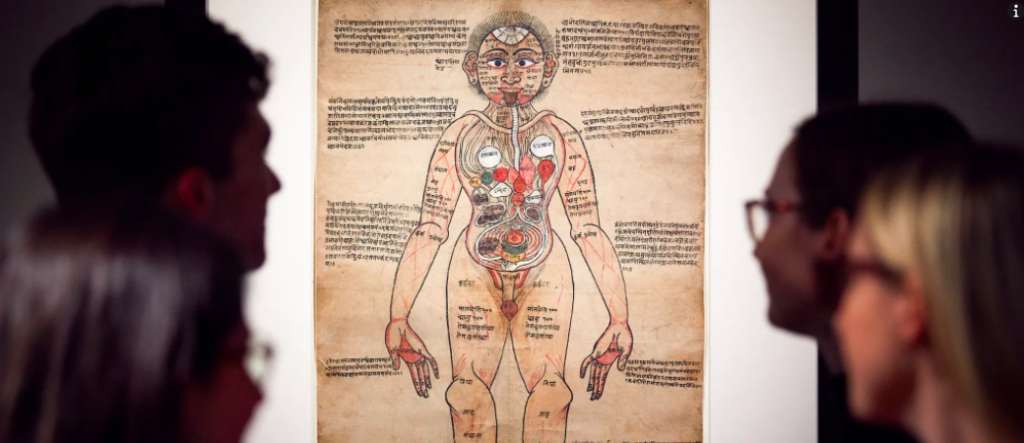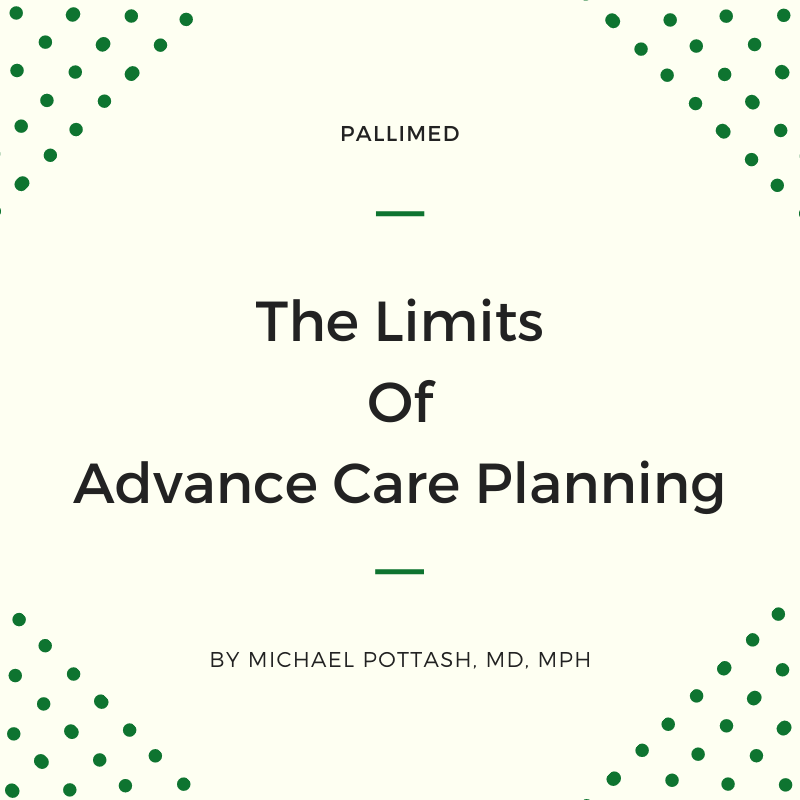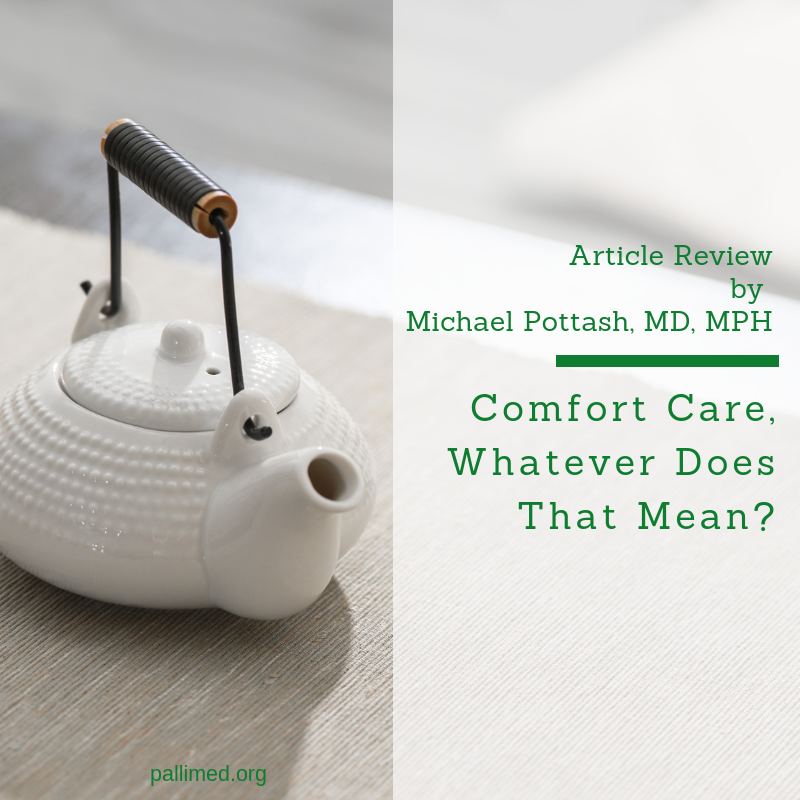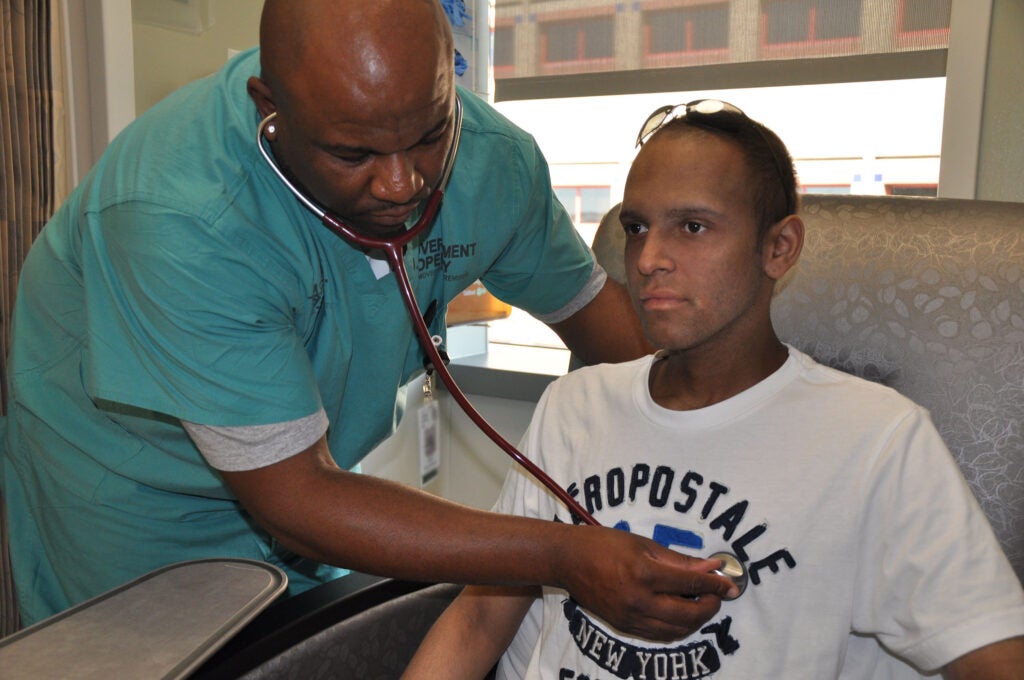Archive: Michael Pottash
12 Articles
- Announcements
- Scholarship
“A Pilot Study to Understand the Role of Medical Humanities in Medical Education”
Clark Pitcher, Arya Prasad, Daniel Marchalik, Hunter Groninger, Lakshmi Krishnan and Michael Pottash study the perception of the students enrolled in the Georgetown University…
September 26, 2022
- Media
“The Limits of Advance Care Planning”, Dr. Michael Pottash’s Perspective on Pallimed
In this piece published on the Pallimed blog, Michael Pottash responds to the case against advance care planning, arguing that a better framework for thinking about these future…
November 22, 2021
- Past events
The Good Life at the End of Life
Discussion on medical and spiritual views on the meaning of the good life during the last stages of life. Speaking to the issue were Devan Stahl (Bioethics and Religion, Baylor…
September 20, 2021
- Scholarship
“Palliative Care Consultation and Effect on Length of Stay in a Tertiary-Level Neurological Intensive Care Unit”
The team of researchers that includes Dr. Michael Pottash and Dr. Hunter Groninger investigated the characteristics and impact of palliative care consultation for patients in a…
August 19, 2020
- Scholarship
“Practicing Serious Illness Conversations in Graduate Medical Education”
Dr. Michael Pottash and his co-authors address the lack of routine practice opportunities in medical training to have a serious illness conversation, including discussing'…
June 3, 2020
- Media
“We Are All Living with Serious Illness Now”, Dr. Michael Pottash and Dr. Anita Hannig’s Reflections on Living with Serious Illness in the Pandemic
Dr. Michael Pottash and Anita Hannig provide some insights, from working with patients living with serious illness, to think about what it means to face a global health.…
April 7, 2020
- Media
“Comfort Care, Whatever Does That Mean?”, Dr. Michael Pottash’s Article Review on Pallimed
Dr. Michael Pottash argues that any term to describe dying care will always be problematic, and, thus, we should get rid of it.…
May 4, 2019
- Media
- Past events
Ethicslab Podcast: Psychiatric Disability and Life Threatening Non-Adherence, featuring Dr. Carol Taylor, Dr. Michael Pottash, Dr. Laura Guidry-Grimes and Dr. Sarah Kleinfeld
In the Ethicslab podcast, Dr. Carol Taylor, Dr. Michael Pottash, Dr. Laura Guidry-Grimes and Dr. Sarah Kleinfeld reflect on the stories of patients with psychiatric disability,…
December 27, 2018
- Media
“Advance Directive-ish”, Dr. Michael Pottash Writes on the Better Healthcare Blog
Dr. Michael Pottash writes about problems with advance directives, and provides specific guidelines for doctors, patients and families to take into account, for them to be.…
October 27, 2018
- Scholarship
“Post-Transplantation Palliative Care: Misconceptions and Disincentives”
Dr. Michael Pottash argues for the value of providing palliative care to transplant recipients, which faces two major barriers: misconceptions about the goals of palliative care,…
January 15, 2018








